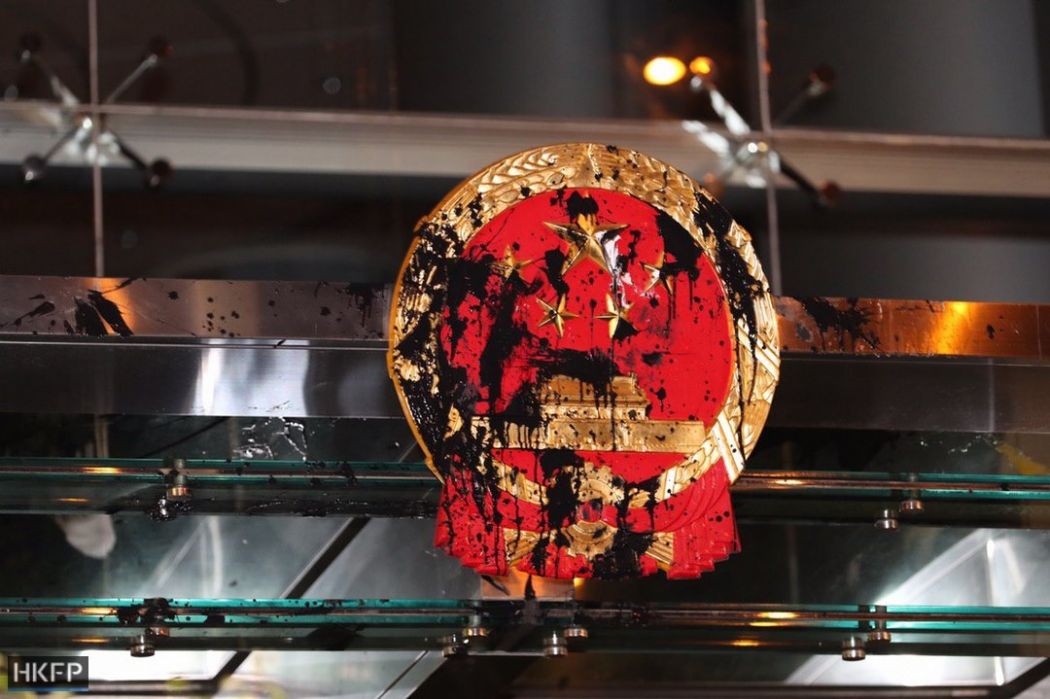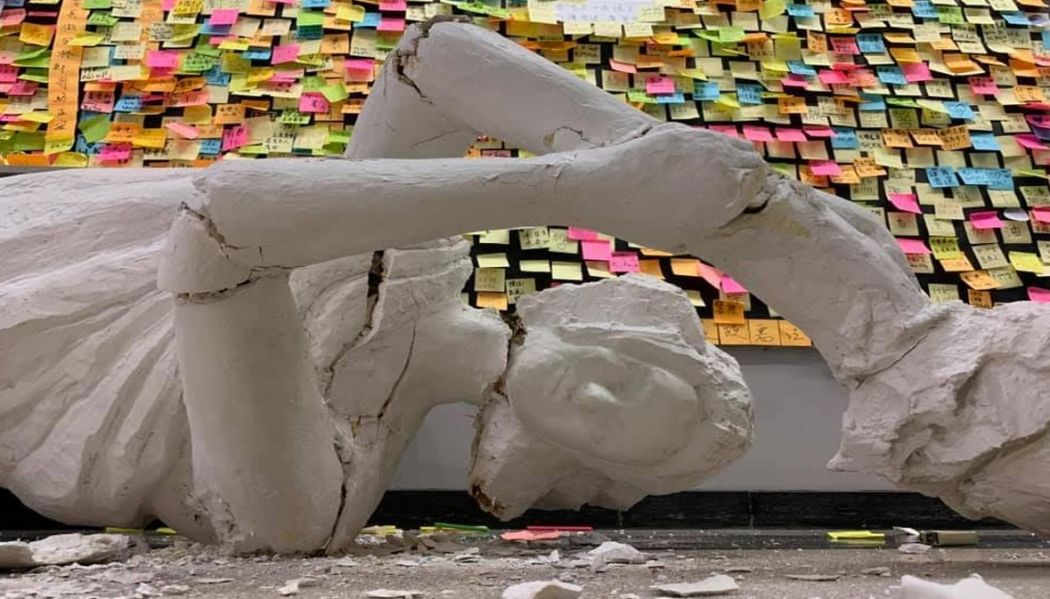By Steve Fore
Recent events have provided us with the opportunity for a comparative analysis of the stakes involved over Hong Kong’s current political crisis. On July 21, in the course of a demonstration at the mainland’s Liaison Office, protesters threw black ink on the seal of the People’s Republic of China. Two days later, at City University, a mainland student ripped swathes of messages from the university’s democracy wall and then toppled the Goddess of Democracy statue that has stood adjacent to the wall for several years, damaging the statue extensively but apparently not fatally. We can take from these two incidents that both sides have symbols that are emotionally and politically potent for their respective adherents. But is there is a difference when material manifestations of those symbols are defaced?

Yes. When protesters at the Liaison Office defaced the PRC seal, it was an act of defiance and anger in the face of an intractable and distant ruling authority that progressively has eroded the freedoms and opportunities for political and cultural expression enjoyed by Hongkongers. Many such rights were in place even in the British colonial era. That authority also has effectively, in plain view and with the complicity of the Hong Kong government, negated the promises encoded in the Basic Law relating to self-governance and “a high degree of autonomy.”
That authority also has a monopoly on state violence, which it has visited upon mainland people in ways both spectacular (the Tiananmen Massacre and subsequent crackdown, the Cultural Revolution) and chillingly quotidian (the widespread practice by municipal and provincial officials, as well as real estate tycoons and other business people, to employ gangs of armed thugs to intimidate and attack would-be petitioners, small-scale landowners and tenants, and any other citizens the state and its allies regard as annoyingly in the way). The latter version of state violence, of course, is what we saw in Yuen Long recently – and five years ago in Mong Kok.

The point in the case of the ink-stained emblem is that the power in this relationship between the Chinese state and the protesters who defaced that emblem is wildly disproportionate. The state could crush the protesters at any time. The only thing holding this eventuality at bay, for the time being, is the state’s calculation that the public relations blowback would be disadvantageous. Let’s see how long that status quo holds.
Meanwhile, in the incident at City University – my former employer for 20 years – the significantly different meaning of the vandalism comes back to that power relationship. CityU students, faculty, and staff are quite rightly appalled and infuriated by this person’s attack on a symbol of Hong Kong’s residual, and now existentially threatened freedom of expression and distinctive local identity. At the same time, I assume that the person who damaged the statue did so out of a belief in principles as sincere and firmly held as those who defaced the seal at the Liaison Office.

But those principles are fundamentally corrupt, diseased. They are in allegiance with the goals and motives of that violent, authoritarian state that systematically denies fundamental political and human rights to mainland citizens. The vandal, in this case, is nothing more than a tool of that state in its current mission to turn Hong Kong into (as the phrase goes) just another Chinese city, which for ordinary Hongkongers would mean living and working in the same situation as Chinese citizens just over the border. This is something the vast majority of Hongkongers do not want.
So two icons of political will and belief are vandalized. For me, one is genuinely tragic, and the other is energizing, an expression of hope and civil disobedience against long odds. But while the bookmakers at the Jockey Club aren’t going to give Hong Kong protesters even odds at this point, history shows over and over again that strange and good things can happen, even as daily events lurch from the hopeful to the apparently hopeless– in the average large scale social or political movement, you lose, you lose, you lose, you lose, you lose…and then you win.
Steve Fore retired from the School of Creative Media, which he joined as a founding faculty member in 1998, at the City University of Hong Kong a little over two years ago.
